
Toll free: 1 (844) KIDNEY4
1 (844) 543-6394
Features
Below are screenshots illustrating some of KidneyTIES's features. Note that all patient information shown is demo data.
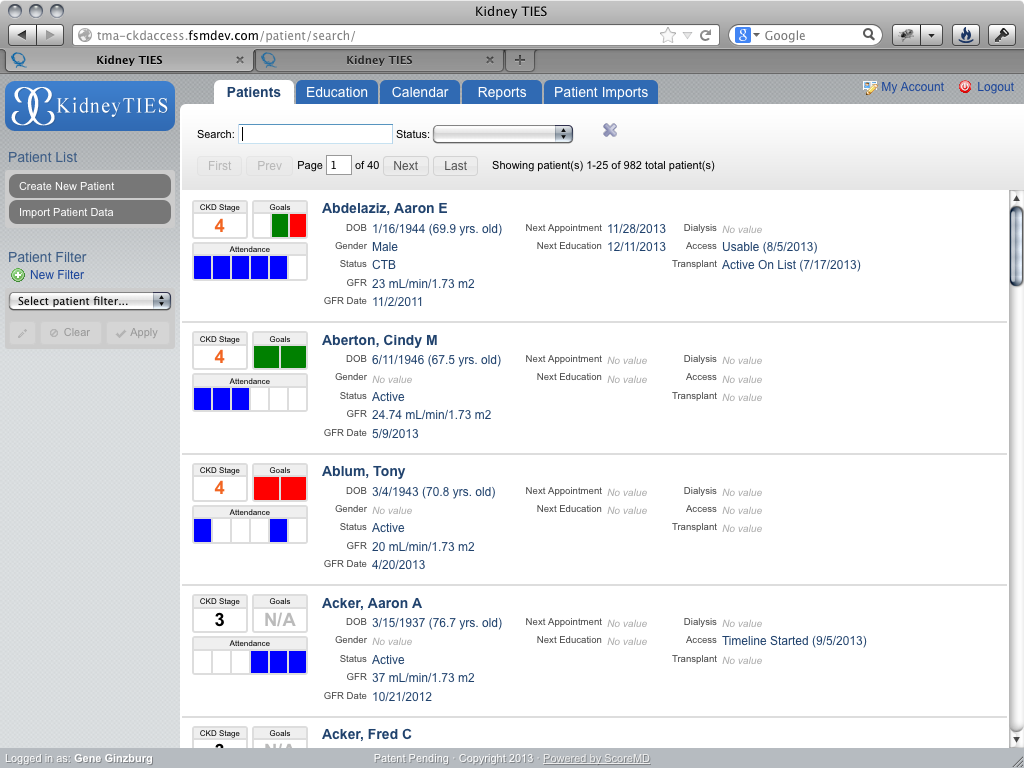
KidneyTIES is an online tool for supporting all aspects of a chronic kidney disease (CKD) education program. The system allows physician's assistants to manage patients in all stages of kidney failure, and ensure that they are in the best possible condition to begin dialysis.
Patients are seamlessly imported into KidneyTIES from existing electronic medical records (EMR/EHR) system using HL7 and continuity of care documents (CCDs).
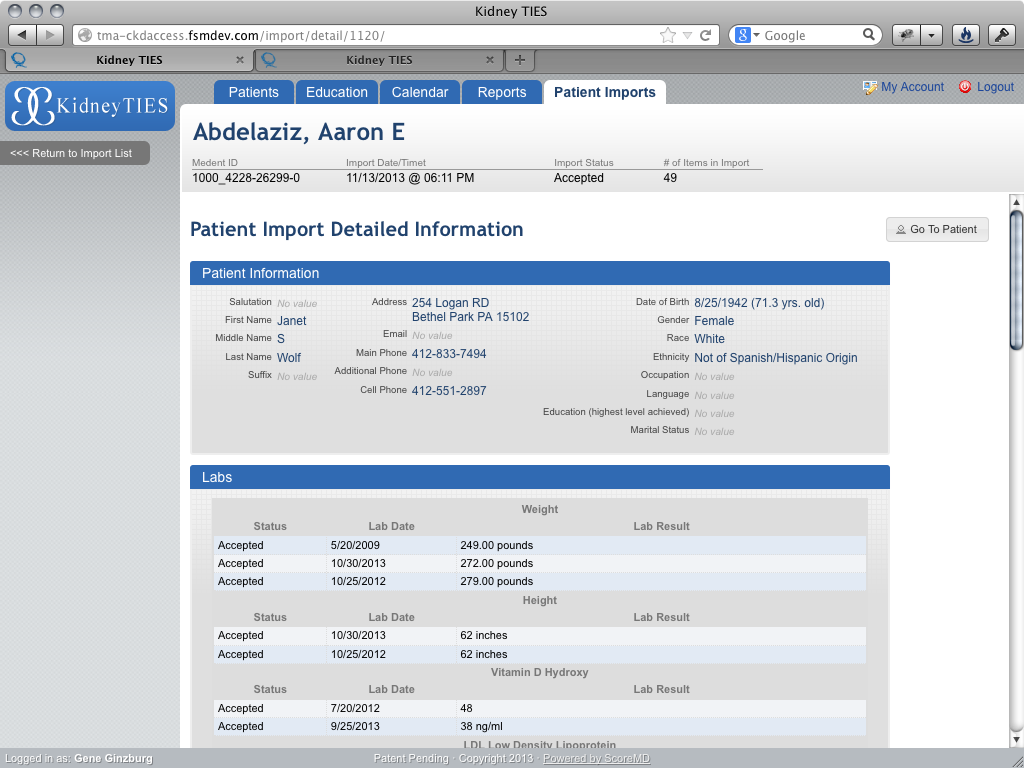
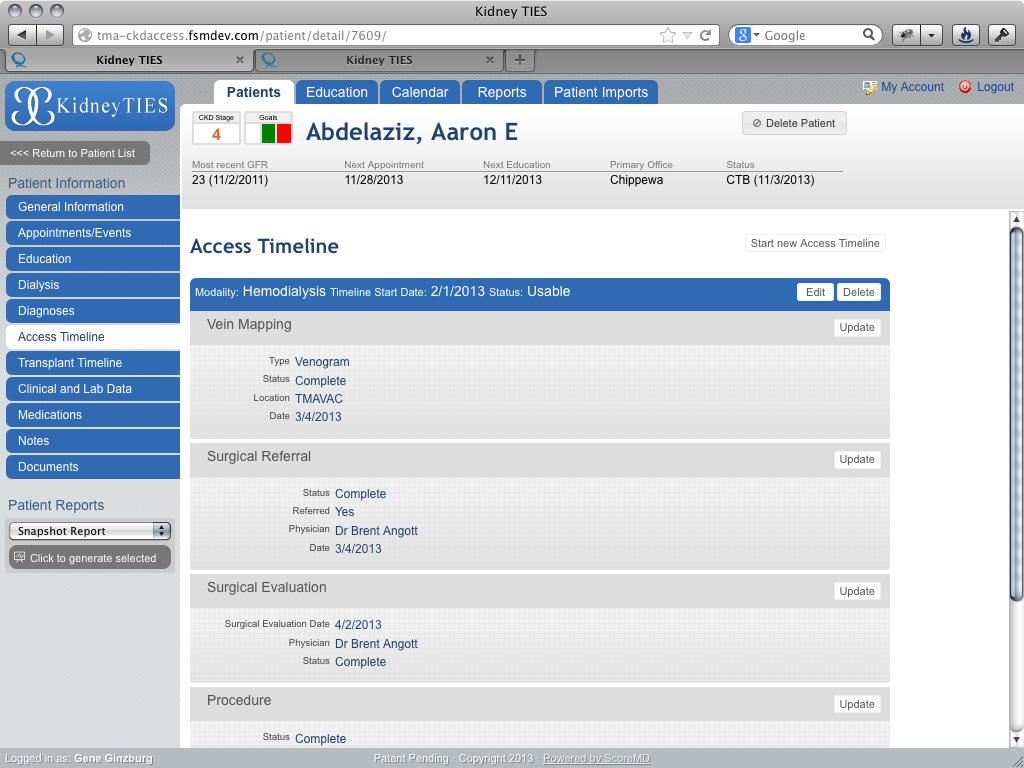
The steps needed for each patient's access placement are documented in a unique timeline, enabling caregivers to better manage the process, ensuring every patient is better prepared to begin dialysis.
Education is documented for each of the prescribed six sessions. Educators have a choice to use the educational frameworks defined by the National Kidney Foundation or customize their own program.
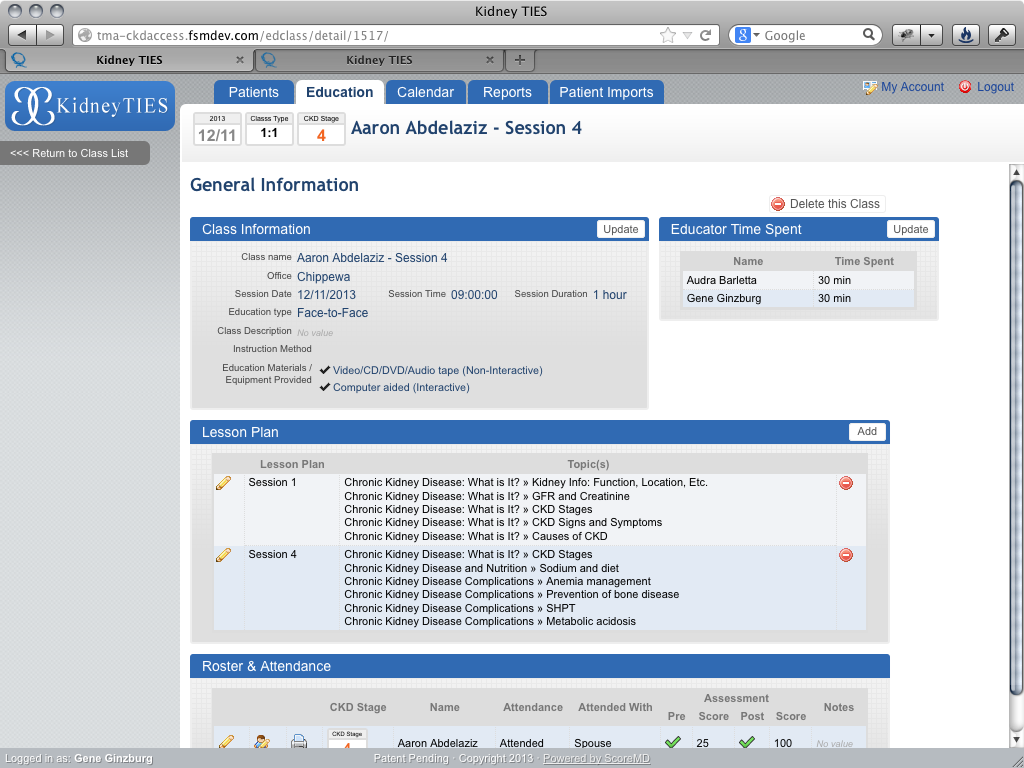
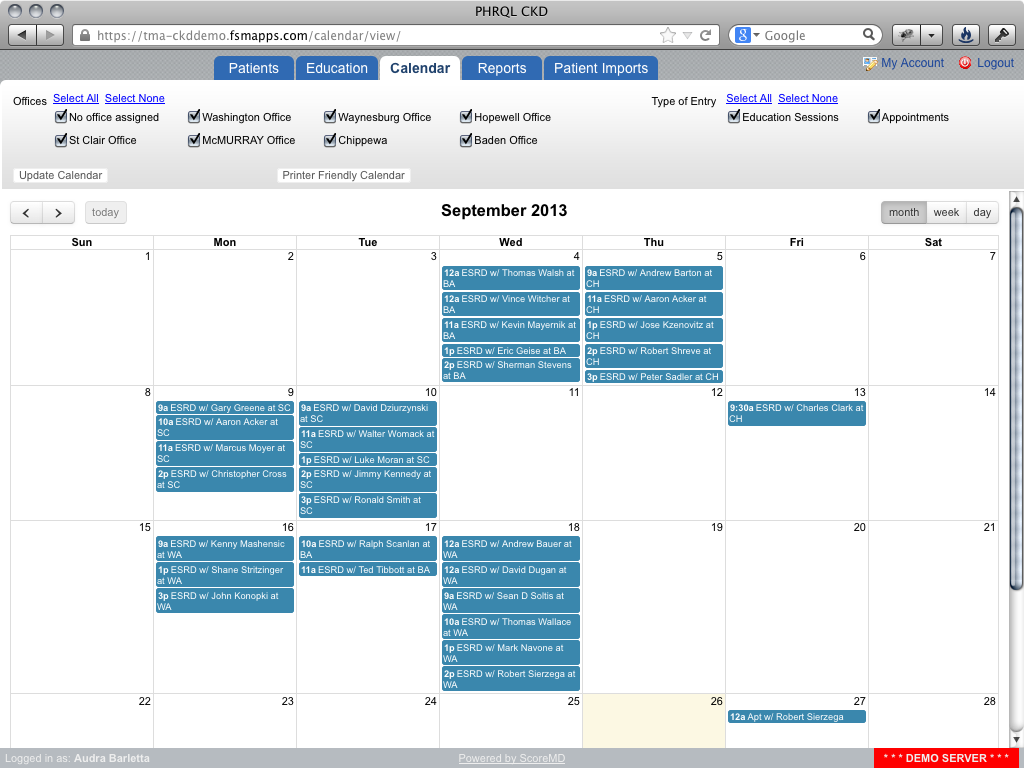
A built in scheduling calendar coordinates all aspects of patient care.
The Patient Education Report conveys important information to the patient about their current goals, their progress towards meeting their goals, educational status (including upcoming education session information), and their kidney care plan.
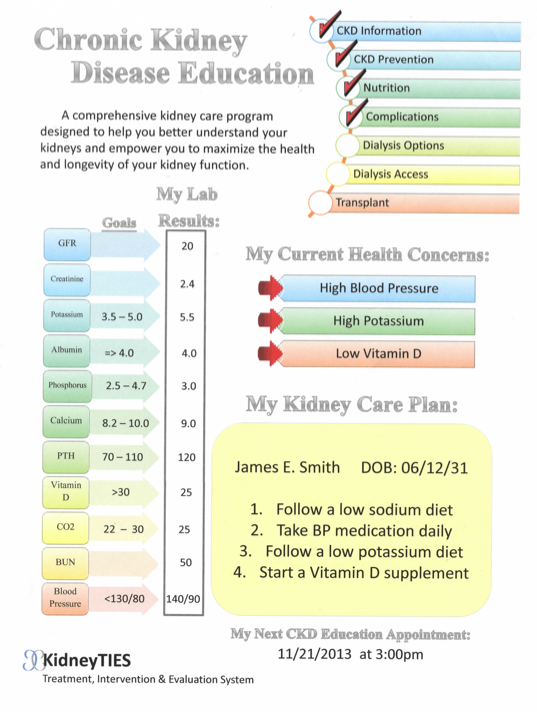
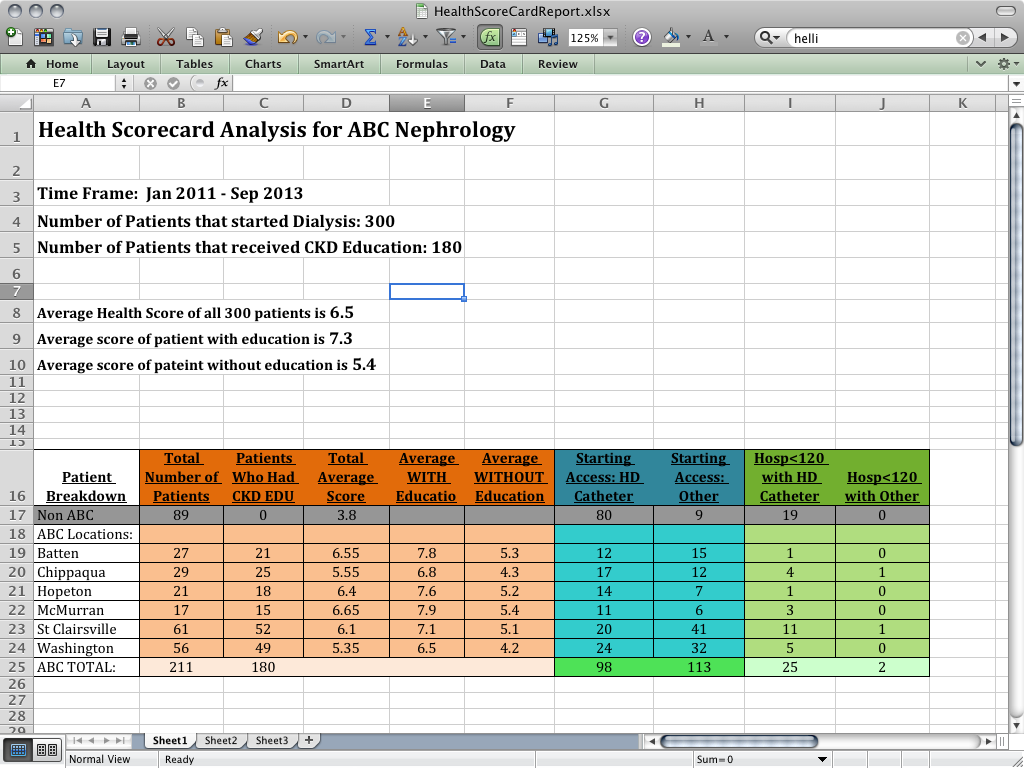
The Health Scorecard Report clearly demonstrates to the practice the effect that the CKD education program is having on the patient population.
The Access Timeline Report provides a dashboard of information about the access status for all patients in the program. This allows the educator to ensure that no patient is "falling through the cracks" during the process of getting an access in place.
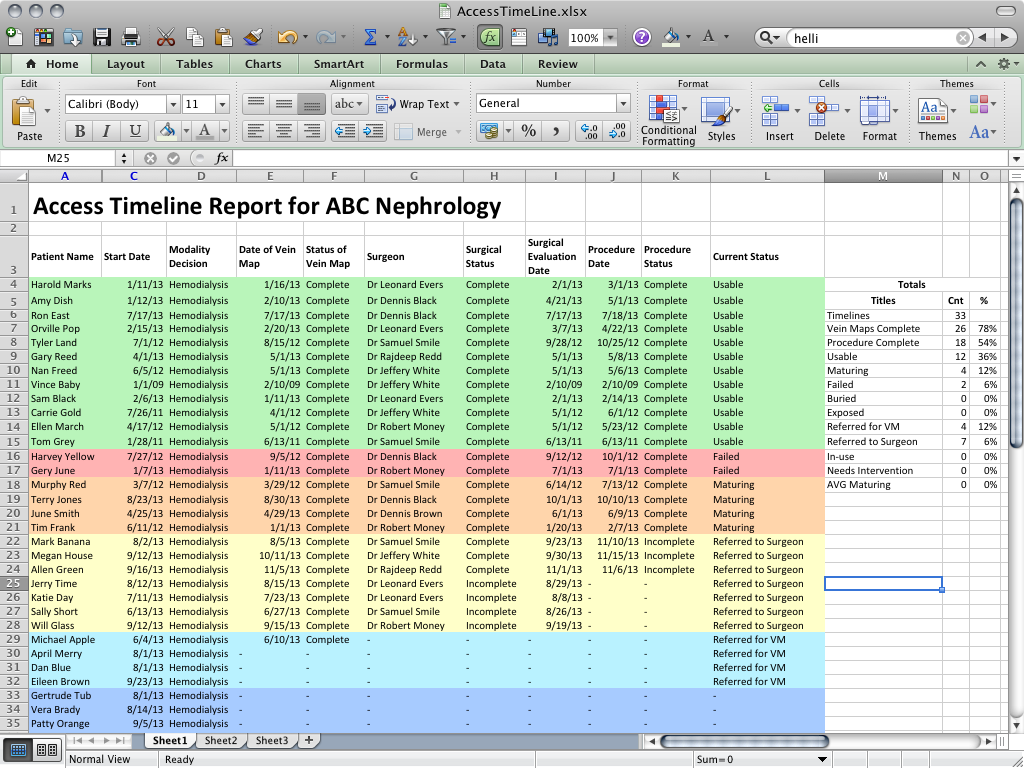
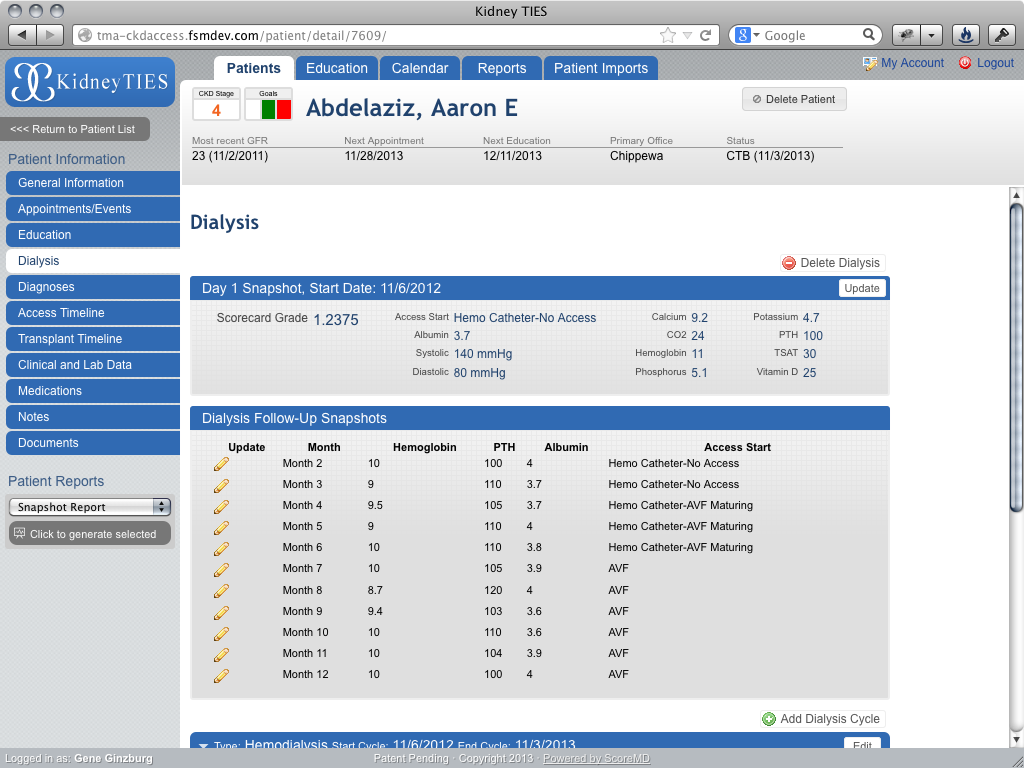
In addition to the practical functionality of the KidneyTIES system, CKD Partners worked with Carnegie Mellon University (CMU) to develop powerful analytics for nephrology programs. Based on the analysis from years of collected patient data, we created the Health Scorecard™, an evaluative metric of a patient's readiness for dialysis. Additionally reports calculate the impact education has on the progression of each patient's disease, including whether or not education played a role in delaying the start of dialysis.